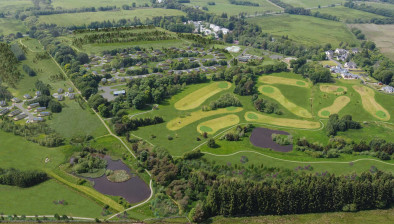Building services company fails in West Linton construction contract dispute appeal
 A judge’s decision to allow a sub-contractor to pursue a contract dispute with a building services company has been upheld by the Inner House of the Court of Session.
A judge’s decision to allow a sub-contractor to pursue a contract dispute with a building services company has been upheld by the Inner House of the Court of Session.
T Clarke (Scotland) Limited had appealed against a judge’s decision to refuse to grant interim interdict to prevent MMAAXX Underfloor Heating Limited from continuing to refer the disputes to adjudication, accusing the sub-contractor of initiating a series of “sham disputes”.
The Inner House of the Court of Session upheld the decision of the Lord Ordinary, who ruled that the court’s “drastic power” to dismiss a claim should be exercised “sparingly”.
Lord Bracadale, Lord Eassie and Lord Drummond Young heard that the pursuer T Clarke (Scotland) Limited was appointed as a sub-contractor to carry out mechanical and electrical works in the redevelopment of West Linton Primary School, and identified the defender MMAAXX Underfloor Heating Limited as a sub-sub-contractor to supply and install ground source heat pumps and underfloor heating systems.
In November 2012, the contract between the pursuer and the defender was set out in a written document which included a clause providing that the subcontract was a “construction contract” for the purposes of the Housing Grants, Construction and Regeneration Act 1996, which allowed for settlement of disputes arising from the contract to be achieved by way of adjudication.
However, the parties’ working relationship “quickly deteriorated” and between June 2013 and March 2014 there were nine adjudications in relation to the contract - of which eight were initiated by the defender and one by the pursuer, and only in one of those was the defender successful.
The pursuer made a number of averments about the attitude, approach and conduct of Mr McFarlane, who was acting on behalf of the defender as its only shareholder. It was contended that the defender was abusing his statutory right to refer “genuine disputes” for adjudication by referring disputes without merit to incur significant legal costs for the other party in order to obtain payment of monies that were not due by forcing a settlement.
The Lord Ordinary, Lord Woolman noted that the pursuer’s averments and the “slew of adjudications” revealed a “troubling picture” and that a “cloud of suspicion” hung over the defender’s conduct and underlying motives.
However, he added that for interim interdict to be granted what was necessary was for the initiation of legal proceedings to be “so unjustifiable as to be an abuse of legal process” and the circumstances of the case “did not yield the clear inference that the defender had acted unreasonably and oppressively”.
On behalf of the pursuer and reclaimer, it was submitted that the Lord Ordinary had been wrong to hold that the pursuer had not set out a “prima facie case” which would justify the grant of an interim interdict against the defender, while on behalf of the defender and respondent it was argued that the court was being invited to innovate on the parties’ contract and that even if the motion for interim interdict was competent the Lord Ordinary was correct in identifying the “high threshold” which the pursuer required to meet.
In refusing the reclaiming motion, the appeal judges said it was important to bear in mind that the pursuer was not seeking to prevent the defender from persisting in a particular adjudication embarked on in bad faith or on an untruthful basis, but to prohibit the defender from referring any future dispute, whether or not brought on a legitimate basis.
Delivering the opinion of the court, Lord Bracadale said: “We consider that the Lord Ordinary was entitled to come to the view that the circumstances did not yield the clear inference that the defender had acted unreasonably and oppressively and that Mr McFarlane’s conduct and the comments attributed to him were also consistent with a robust approach. We agree with the Lord Ordinary’s conclusion that the key consideration was that the grant of interim interdict would prohibit the defender from initiating any further adjudication, no matter how genuine and well vouched.
“In these circumstances we are of the view that the Lord Ordinary was correct to conclude that the pursuer had failed to set out a prima facie case such as would allow the court to intervene to grant the interim interdict sought. In our view the reasons given by the Lord Ordinary for exercising his discretion in favour of the defender were sound and we reject the criticisms of them advanced.”













